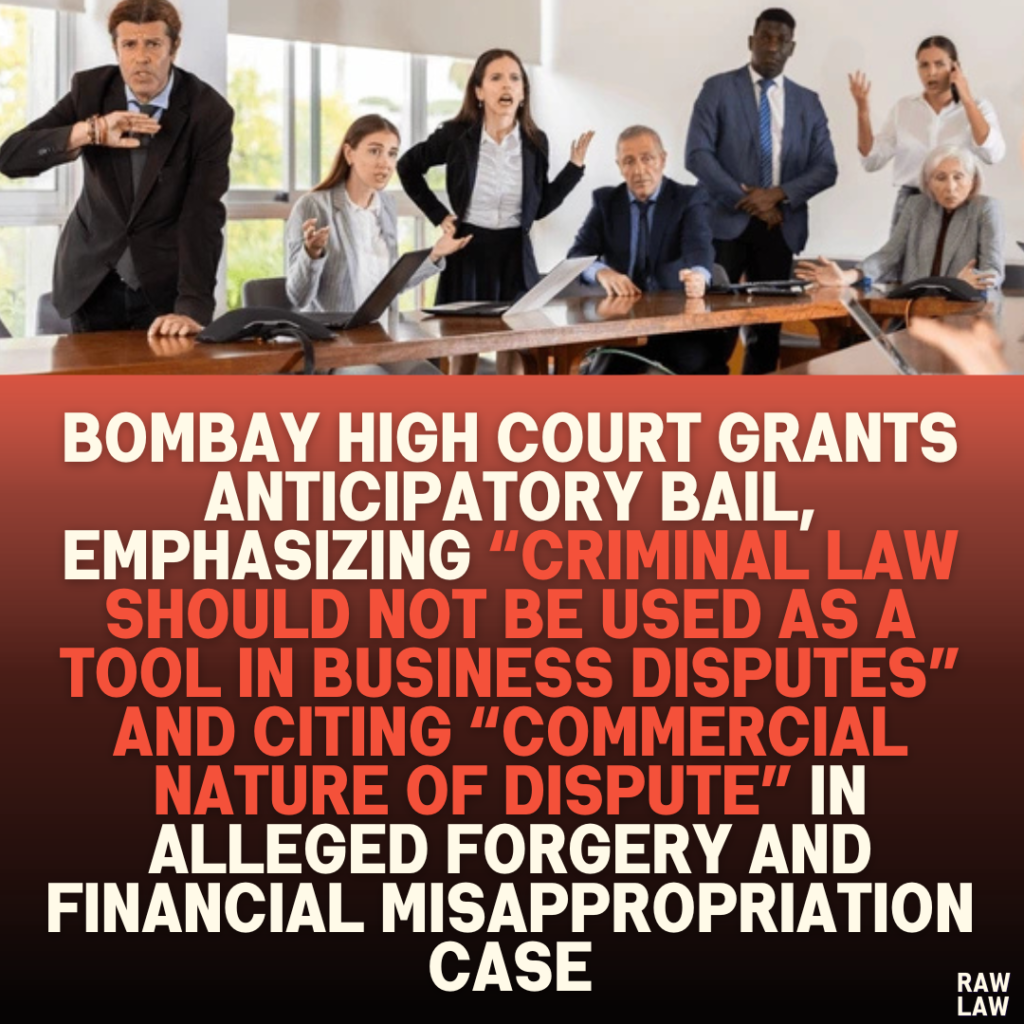Court’s Decision:
The Bombay High Court granted anticipatory bail to the applicants, requiring each to post a PR Bond of ₹50,000. The court concluded that the criminal charges stem from a primarily commercial dispute and that the applicants should be protected from arrest, subject to conditions such as cooperation with the investigation.
Facts:
The case involves allegations of forgery and financial fraud. According to the informant, the applicants allegedly engaged in fraudulent activities while forming a partnership and purchasing a sugar factory. The informant and her husband claimed they invested substantial funds, which the applicants and their family did not reciprocate. A dispute arose when the informant sought to retire from the partnership and claim her dues, leading to a criminal complaint.
Issues:
- Whether the dispute was inherently criminal or of a civil/commercial nature.
- Whether the applicants’ actions justified custodial interrogation, particularly regarding allegations of forgery and unauthorized signatures.
Petitioner’s Arguments:
The applicants argued that the dispute is commercial, as highlighted by existing arbitration clauses in the partnership documents. They contended that criminal proceedings were being misused to pressure them into settling a civil dispute. The applicants cited “parity” in relation to a co-accused previously granted bail.
Respondent’s Arguments:
The prosecution opposed the bail, emphasizing the gravity of the accusations, including alleged forgery and unauthorized signatures. They argued that parity should not apply to the applicants and highlighted that the whereabouts of a co-accused remained unknown.
Analysis of the Law:
The court analyzed whether criminal allegations could be substantiated based on the provided evidence. Noting the arbitration clauses, the court observed that the contractual relationship suggests a civil dispute rather than a purely criminal offense.
Precedent Analysis:
The court referred to its prior order granting bail to a co-accused under similar conditions, which highlighted the civil nature of the underlying transactions and the mutual grievances between the parties.
Court’s Reasoning:
The court found that the allegations of forgery and unauthorized signatures seemed peripheral, especially given the authorizations cited by the applicants. The court underscored the civil and commercial aspects of the case, concluding that criminal law should not be used as a tool in business disputes. Additionally, the court noted that the informant had attempted to settle the matter civilly, which further supports the commercial characterization of the conflict.
Conclusion:
The court granted anticipatory bail, conditioned on the applicants’ cooperation with the investigation and their commitment not to influence or tamper with evidence. The court also clarified that this order should not influence the trial court.
Implications: This judgment underscores judicial caution in cases where criminal proceedings might be leveraged to coerce settlements in business disputes. The court’s decision reinforces the principle that civil disputes, particularly those involving arbitration clauses, should not easily transform into criminal allegations.



